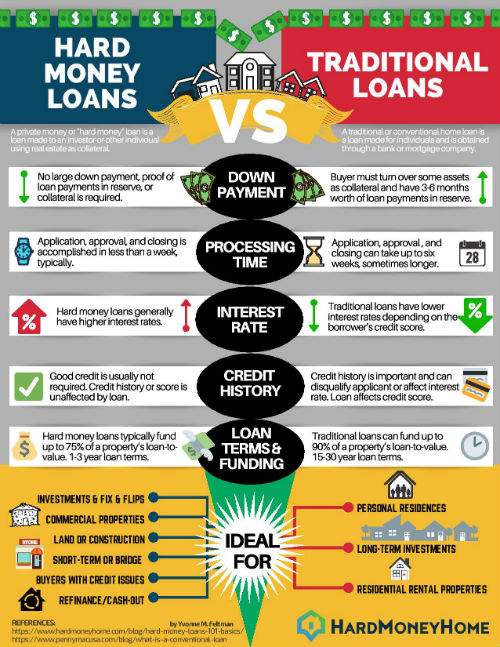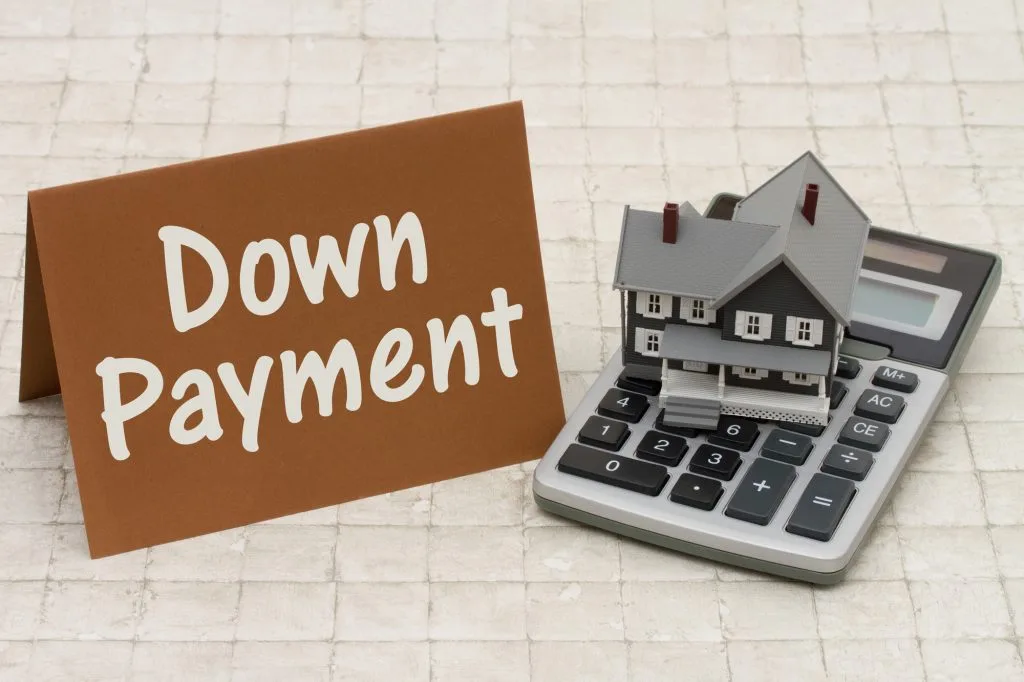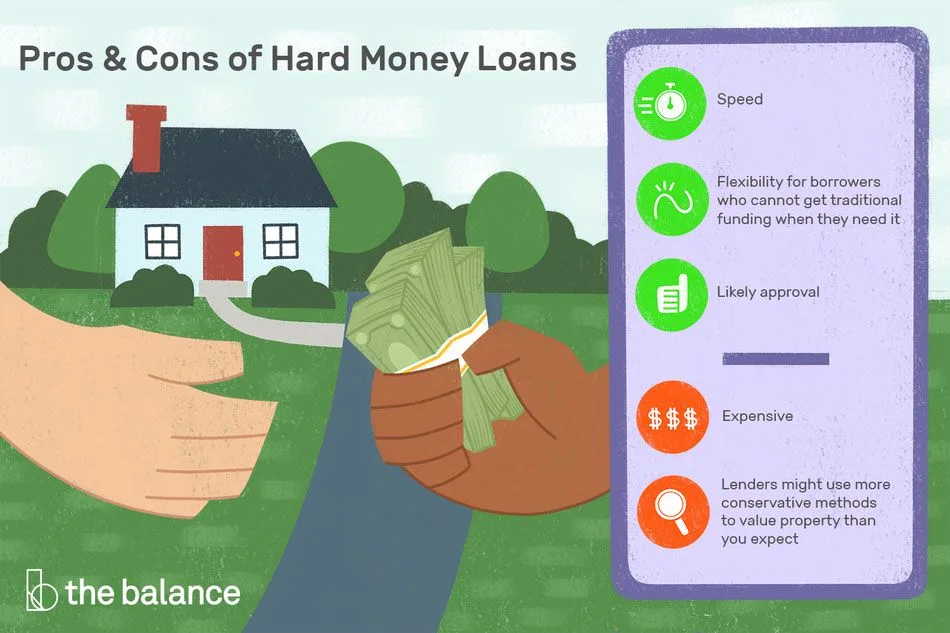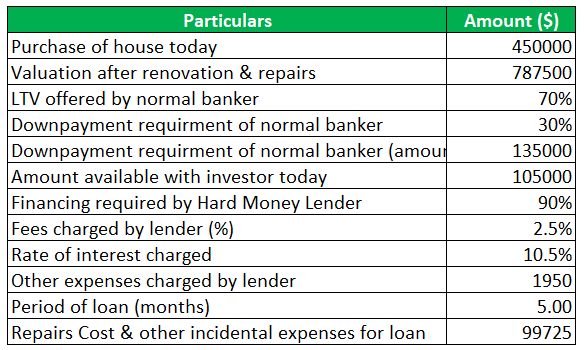In the world of real estate investing, securing financing can often be a major hurdle for aspiring investors. Traditional lenders often demand hefty down payments and have strict qualifications. However, there is an alternative option that has gained popularity in recent years – hard money lenders. These lenders specialize in providing short-term loans for real estate investment purposes. But the big question remains: do hard money lenders require a down payment? In this article, we will explore the typical requirements of hard money lenders and shed light on whether or not a down payment is necessary for securing such loans.
What are hard money lenders?
Definition
Hard money lenders are private individuals or companies that provide short-term loans, typically for real estate investments. These loans are secured by the property itself, rather than the borrower’s creditworthiness. Hard money lenders often specialize in financing projects that traditional lenders may consider too risky or unconventional. They typically have a quick approval process and disburse funds faster than traditional lenders.
How they work
When you approach a hard money lender for a loan, they will assess the value of the property you intend to purchase as well as your exit strategy for repaying the loan. Since hard money lenders prioritize the collateral property rather than the borrower’s credit history, the loan approval is mainly based on the property’s potential value and the overall investment plan. Once approved, the lender will disburse the loan amount, and you will be required to make periodic interest payments until the loan is fully repaid.
Benefits of hard money lenders
Hard money lenders offer several advantages over traditional lenders. Firstly, their flexible approval guidelines allow investors with less-than-perfect credit to secure financing. Additionally, hard money lenders often consider the potential profitability of a property, making them more open to funding unconventional projects. Furthermore, their quick approval and funding process enables investors to take advantage of time-sensitive opportunities, such as purchasing properties at auction. These benefits make hard money lenders a valuable resource for real estate investors seeking alternative financing options.
The role of down payments
Importance of down payments
Down payments play a crucial role in any real estate transaction, including those involving hard money lenders. When you make a down payment, you contribute a portion of the property’s purchase price upfront, reducing the overall loan amount needed. This demonstrates your commitment to the investment and reduces the lender’s risk. Down payments also have an impact on the terms and interest rates of your loan. Thus, understanding the role of down payments is essential when working with hard money lenders.
Traditional mortgage lenders
Traditional mortgage lenders often require borrowers to make a down payment, typically ranging from 3% to 20% of the purchase price. This down payment acts as a security deposit, protecting the lender from potential losses if the borrower defaults on the loan. The size of the down payment depends on various factors, including the borrower’s creditworthiness, the loan program, and the type of property being financed.
Hard money lenders
Unlike traditional mortgage lenders, hard money lenders have more flexibility in their down payment requirements. Since they primarily focus on the collateral property rather than the borrower’s credit history, their down payment requirements may vary. Hard money lenders may consider the potential profitability of the investment, the property’s condition, and the borrower’s overall investment plan when determining the down payment amount.

Factors influencing down payment requirements
Loan-to-value (LTV) ratio
The Loan-to-Value (LTV) ratio is a crucial factor that influences down payment requirements. It represents the percentage of the property’s value that the lender is willing to finance. Hard money lenders typically have different LTV thresholds, ranging from 50% to 75% of the property’s appraised value. A lower LTV ratio means a higher down payment requirement.
Borrower’s creditworthiness
While hard money lenders prioritize the collateral property, they may still take the borrower’s creditworthiness into account when determining the down payment requirement. A borrower with a strong credit history and a proven track record of successful investments may be able to negotiate a lower down payment with the lender.
Property type and condition
The type and condition of the property being financed also influence down payment requirements. Hard money lenders may consider properties with higher potential profitability as less risky, potentially resulting in a lower down payment requirement. Additionally, lenders may require a higher down payment for properties that require extensive repairs or renovation.
Loan terms and lender requirements
Each hard money lender may have specific loan terms and requirements that impact the down payment amount. Some lenders may have a fixed down payment requirement for all loans, while others may consider various factors and negotiate the down payment based on the overall investment plan and the borrower’s credentials. It is important to discuss and understand the specific requirements of each lender before proceeding with a loan application.
Down payment options with hard money lenders
Full down payment
The most straightforward option when working with hard money lenders is to make a full down payment. This means contributing the entire required down payment amount in cash upfront. Making a full down payment reduces the loan amount and may result in more favorable loan terms and interest rates.
Partial down payment
If making a full down payment is not feasible, hard money lenders may allow borrowers to contribute a partial down payment. This means paying only a portion of the required down payment upfront, while the remaining balance is financed as part of the loan. The lender may adjust the loan terms and interest rates based on the borrower’s down payment amount.
Increased interest rates
In some cases, hard money lenders may offer the option of financing the entire down payment. However, this typically comes with higher interest rates on the loan. While this allows borrowers to conserve their cash and proceed with the investment, it is important to carefully consider the long-term impact of the increased interest expenses.
Cross-collateralization
Another option worth exploring with hard money lenders is cross-collateralization. This involves using equity from one property as collateral for the loan on another property. By leveraging the value of multiple properties, borrowers may be able to negotiate lower down payment requirements with the lender.

Advantages of a down payment
Lower loan amount
The primary advantage of making a down payment is reducing the overall loan amount needed. By contributing a significant portion of the property’s purchase price upfront, borrowers can secure a smaller loan, resulting in lower monthly payments and potentially more favorable loan terms.
Reduced interest charges
When the loan amount is lower due to a down payment, borrowers also benefit from reduced interest charges over the course of the loan. With a smaller loan balance, the monthly interest payments decrease, allowing borrowers to save money in the long run.
Lender’s risk mitigation
Making a down payment demonstrates your commitment to the investment and reduces the lender’s risk. By contributing a portion of your own funds, you show that you have a personal stake in the success of the project. This can positively influence the lender’s confidence in your ability to manage the investment, potentially leading to more favorable loan terms and a higher likelihood of loan approval.
Disadvantages of a down payment
Tying up liquid assets
One of the main disadvantages of making a down payment is the immediate tie-up of liquid assets. By committing a significant amount of cash upfront, you may face a temporary loss of liquidity. This can limit your financial flexibility and ability to pursue other investment opportunities.
Reduced cash flow
Another potential disadvantage is the impact of a down payment on your cash flow. By contributing a significant portion of your funds towards the down payment, you may have less cash available for other business operations or personal expenses. It is important to carefully evaluate your financial situation and ensure that you have sufficient reserves to cover any unexpected costs.
Potential loss if deal falls through
In the unfortunate event that a real estate deal falls through, you may risk losing your down payment. Depending on the terms of your agreement with the seller or hard money lender, the down payment may be non-refundable. This highlights the importance of thoroughly evaluating and conducting due diligence on potential investments before committing your down payment.

Alternatives to down payments
Equity in existing property
One alternative to making a down payment involves leveraging the equity in an existing property. If you own other real estate properties, you may be able to use the equity as collateral for the loan, potentially reducing or eliminating the need for a cash down payment. This option allows you to conserve your cash and still secure the financing necessary for your new investment.
Secure a co-signer
If your own financial resources are limited, you may consider securing a co-signer for the loan. A co-signer is an individual with a strong credit history and financial stability who guarantees the loan. By having a co-signer, you may be able to negotiate a lower down payment requirement or enhance your overall borrowing capacity.
Seller financing
Seller financing is another alternative to making a down payment. In certain situations, sellers may be open to financing a portion of the purchase price themselves. This arrangement eliminates the need for a traditional down payment, as the seller essentially becomes the lender. Negotiating seller financing terms can be beneficial for both parties, providing you with more flexibility and potentially facilitating the transaction.
Private money partnerships
Forming private money partnerships is another option for securing financing without a down payment. By partnering with individuals or organizations interested in investing in real estate, you can pool resources and share the financial burden. Private money partnerships often involve agreements that allow each party to contribute their expertise or resources to the investment in exchange for a share of the profits.
Negotiating down payment requirements
Building a relationship with the lender
Developing a strong relationship with hard money lenders can be beneficial when negotiating down payment requirements. By demonstrating trustworthiness, reliability, and a track record of successful investments, lenders may be more open to negotiating lower down payments. Building a good rapport with lenders can also enhance your chances of securing future financing under favorable terms.
Demonstrating a strong investment plan
When approaching hard money lenders, presenting a well-developed investment plan is crucial for negotiating down payment requirements. A detailed and comprehensive plan that highlights the potential profitability of the project and outlines your strategy for repayment can instill confidence in lenders and potentially result in more flexible down payment terms.
Highlighting collateral value
Emphasizing the value and potential of the collateral property can also help in negotiating down payment requirements. Conducting thorough due diligence, obtaining accurate appraisals, and providing supporting documentation demonstrating the property’s market value and future potential can persuade lenders to lower the down payment.
Leveraging competitive market
In a competitive market, hard money lenders may be more willing to negotiate down payment requirements to attract borrowers. By researching and identifying multiple lenders, you can leverage their competition to your advantage. Comparing loan terms and down payment requirements from different lenders enables you to make informed decisions and negotiate more favorable terms.

Tips for finding hard money lenders with low or no down payment
Research local lenders
Start by researching and identifying local hard money lenders that specialize in your desired investment market. Local lenders often have a better understanding of the local real estate market and may have specific programs or incentives for borrowers.
Explore nationwide lending sources
While local lenders may be your first choice, it is also worth exploring nationwide lending sources. Many national hard money lenders operate across various states and may offer more competitive loan terms and down payment options.
Network with real estate professionals
Networking with real estate professionals, such as real estate agents, brokers, and investors, can provide valuable insights and recommendations for finding hard money lenders with low or no down payment requirements. Professionals in the industry often have established relationships with lenders and can connect you with reputable and reliable sources.
Attend real estate investment conferences
Attending real estate investment conferences and seminars can also be a productive way to connect with hard money lenders. These events attract industry professionals, including lenders, who often share their expertise and services with attendees. Building personal connections at these conferences can lead to valuable networking opportunities and access to lenders who may offer flexible down payment options.
Conclusion
Hard money lenders provide a viable alternative for real estate investors seeking financing options outside of traditional mortgage lenders. While down payments may still be required, the flexibility and potential benefits of working with hard money lenders make it a viable option for many investors. Understanding the role of down payments and exploring various down payment options can help investors make informed decisions and negotiate favorable terms with hard money lenders. By evaluating personal financial resources, exploring alternative financing options, and leveraging competitive market conditions, investors can find hard money lenders with low or no down payment requirements to support their real estate investment goals.




